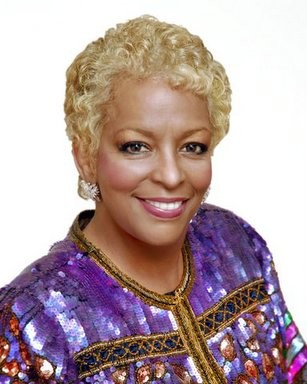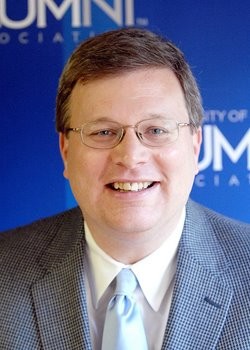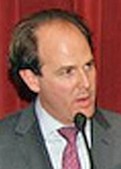A sales-tax increase in Memphis could raise millions every year to fund a program of pre-kindergarten education that supporters say could help break the chain of crime and poverty here, but first it’s got to fly with tax-weary voters.
Memphians will decide next Thursday, November 21st, if they want to raise the city’s sales tax by a half-cent. The idea is one of only two ballot measures before city voters that day. (The other vote will determine who will fill the state House District 91 seat, left vacant by the death of former state representative Lois DeBerry in July, and will be limited to voters in that district.)
If the increase is approved, the Memphis sales-tax rate will rise to 9.75 percent, the highest rate allowable in Tennessee by state law. The resulting new sales-tax rate would be equal to those of the six incorporated Memphis suburbs, which have already passed equivalently sized tax-increase referenda in order to pay for new school systems.
Some things would not change. If approved, 7 percent of each sale made in Memphis will be routed directly to the state coffers, and 2.25 percent will continue to go to the city, as before.
But the new tax, that additional one-half cent, is expected to raise $47 million annually, all of which would go to a new fund to be used only for a pre-kindergarten program. Once the program is up and running, any money left over from operations would revert to the city coffers for the sole purpose of reducing the city’s property-tax rate. Leak-proof escrow funds (or “lock-boxes,” in the sense made famous by presidential candidate Al Gore in 2000) would be created to fulfill both purposes.
The pre-K initiative is the brainchild of two Memphis City Council members —Jim Strickland, a six-year member, a two-time budget chair, and the body’s new chairman, and council colleague Shea Flinn, a former budget chair.
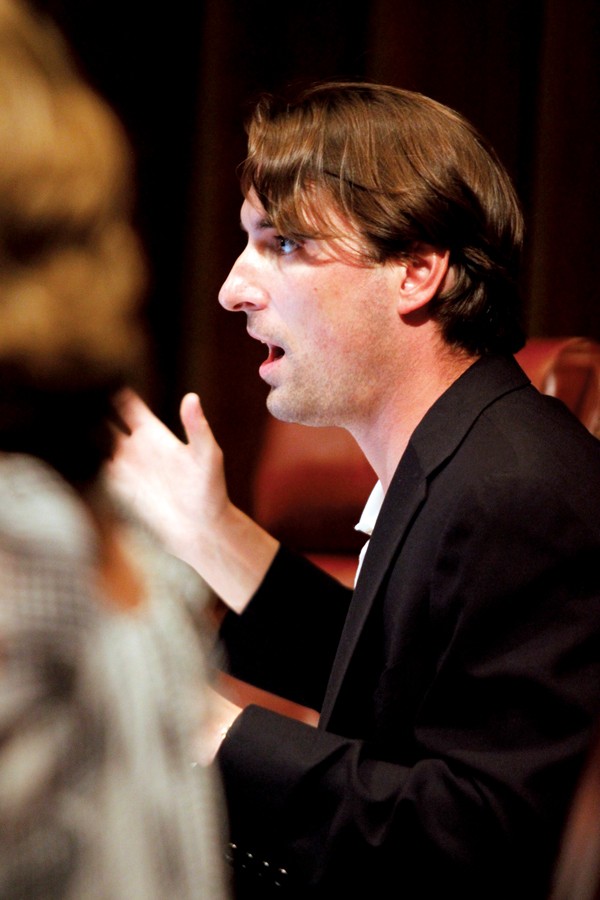
Shea Flinn
Strickland boasts a long personal history of fighting tax increases in city government but says he has supported the new sales-tax increase and co-sponsored the enabling ordinance for it because the use of the money is strictly defined in the ordinance so that it can’t be tapped for other city budget needs.
Beyond the arithmetic is the simple rock-bottom fact that many city schoolchildren aren’t performing like they should be.
“If I was a magician and I could do anything I wanted in Memphis, I would wave the wand and every third-grader would read at third-grade level, 100 percent,” Strickland said. “Pre-K is not going to make 100 percent of the kids read at third-grade level, but only 28 percent of them read at third-grade level now in the former city schools.”
There are conflicting studies on the long-term effects of pre-K, a few skeptical ones appearing to suggest that the differential boost in learning provided by pre-K might begin to even out after students pass the third-grade level. Strickland discounts this and says that it stands to reason that the ability to read at a third-grade level is a skill which, once acquired, is far more enabling for future purposes than reading skills that never reach that level.
The Urban Child Institute, a local nonprofit organization which has done yeoman-like research into the issue and is four-square in support of the tax referendum, recently quoted a teacher with experience in pre-K: “It’s very polarized in the classroom, between the ‘ready’ and the ‘not ready’ group. Those who are kindergarten-ready are on a whole different level than the kids who still need to know the basics, like letter names and numbers.”
The new pre-K program would be available for every 4-year-old in Memphis. Strickland said nearly 8,000 children in Memphis would be eligible for the program but estimated that only 5,000 of them would actually become new participants, as some are already in existing programs and others might not seek enrollment for one reason or another.
For example, an estimated 3,300 children are already being served locally in federally funded Head Start programs. Head Start, as both Strickland and co-sponsor Flinn acknowledge, overlaps somewhat with their proposed pre-K initiative and establishes a means-tested income threshold based on the poverty-line indices.
But even in the unforeseen event of 100 percent participation — 8,000 children — Strickland says the new sales-tax rate would generate enough money for all eligible children to go to pre-K.
As it happens, the current Head Start program is in flux, with Shelby County government, which has operated it locally for several years (mainly by outsourcing it to various agencies), discontinuing its administrative role. The unified Shelby County School District has applied to the federal government to take over that function in Shelby County, as has Porter-Leath, a privately funded nonprofit institute specializing in child care.
In any case, the proposed city pre-K initiative is designed to fill gaps in coverage which Head Start cannot fill — for example, to offer programs to children from families whose income exceeds poverty-line levels but cannot afford the tuition required by private pre-kindergarten institutions.
The exact number of pre-K children who might need to be served in the next few years is complicated by two more factors, Flinn points out: the cumulative effect of federal sequestration on previously endowed programs and the phasing out of Race to the Top funding in 2015.
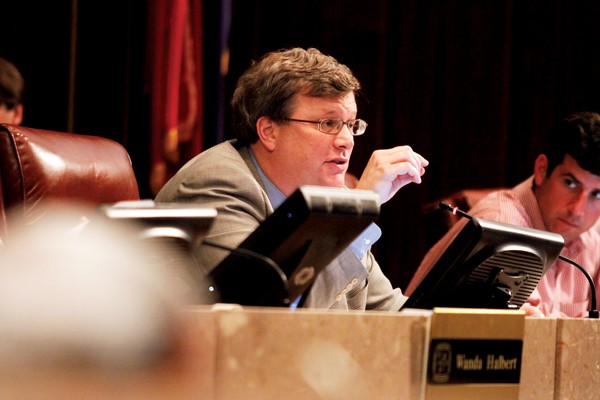
Jim Strickland
Flinn said he and Strickland, who hatched the idea for the pre-K issue and were successful in gaining the support for it of their colleagues and Mayor A C Wharton, consulted numerous sources in coming up with their initiative. They relied on the formidable pre-K research of the aforementioned Urban Child Institute. Said Flinn: “They investigated every aspect of the matter and left no doubt of the lasting value of pre-K.” They also independently looked into model programs in Texas and Oklahoma.
“We talked directly with Mayor [Julian] Castro of San Antonio and others who had programs under way,” Flinn said. Castro, a rising political star who delivered the keynote address at the 2012 Democratic National Convention in Charlotte, has achieved national renown for his “Pre-K 4 S.A.” initiative.
Flinn acknowledges that “the default position” of a tax referendum is no, but, noting the yes votes of the six Shelby County suburbs — Germantown, Collierville, Bartlett, Arlington, Lakeland, and Millington — for a tax increase to underwrite their school systems, he expresses confidence in a similar answer when the ballots of Memphis voters are counted on November 21st.
One aid to passage has been a blue-ribbon pre-K commission appointed by Mayor Wharton [see list below] to help in the referendum campaign and, if successful, to oversee the distribution of pre-K franchises among local agencies, existing and ad hoc, which will bid for the opportunity to execute the program.
More help has come in the form of print ads, mailouts, broadcast commercials, and fast-proliferating yard signs stemming from a well-organized publicity campaign overseen by public relations maven Steven Reid. The Greater Memphis Chamber of Commerce has put significant money into the campaign, as have other prominent local givers such as AutoZone’s J.R. “Pitt” Hyde.
There are opponents, too, of course, including veteran self-appointed fiscal watchdog Joe Saino of memphishelbyinform.com, who expressed doubts about the bona fides of the pre-K commission appointed by Wharton. “Do you trust such a commission?” Saino asked in his emailed newsletter, going on to express, without elaborating, his disbelief in the long-term benefits of pre-K, as well.
Saino’s pièce de résistance: “There should be no new taxes until the city of Memphis and the city council reform pensions and health care costs and get on a path to reduce unfunded liability as pointed out by the state of Tennessee.”
Co-sponsors Strickland and Flinn know they’re up against the usual suspects and the usual suspicion when a tax referendum is before the people (a Shelby County half-cent tax initiative failed badly last year), but they’re optimistic that this time is different and that help will soon be on the way for their intended beneficiaries, the children of Memphis.
MEMBERS OF THE PRE-K COMMISSION
Appointees named by Mayor A C Wharton are: the Rev. Keith Norman, pastor of First Baptist Broad Ave. and president of the local NAACP chapter; Brad Martin, well-known industrialist/philanthropist and interim president of the University of Memphis; Barbara Hyde, chair and president of the philanthropic Hyde Foundation; Barbara Holden Nixon, associate of the Urban Child Institute and member of the Tennessee Commission on Children and Youth; Elsie Lewis Bailey, former principal of Booker T. Washington High School and awardee of the National Foundation for the Humanities; Kathy Buckman Gibson, chair of the board of Buckman International and of the Memphis Chamber of Commerce’s initiative to promote and support early childhood education; Kirk Whalum, president and CEO of Stax Music Academy; and Dr. Reginald Coopwood, president and CEO of the Regional Medical Center at Memphis.
CENTRIST STRICKLAND IS POTENTIAL MAYORAL CANDIDATE
It may come as a surprise to many people that new city council chairman Jim Strickland, a practicing attorney who has crusaded in recent years for economy in city government, along with reduction in property taxes and cutbacks in “non-essential” programs, is not a Republican. The 48-year-old Strickland certainly is simpatico to the habitués of the monthly Dutch Treat Luncheon, that haven of local Tea Party-hood, which Strickland addressed last summer to enthusiastic approval and to urgings that he run for mayor in 2014.
The genial giant (he stands 6′ 5″) needs little persuasion to seek the job of Memphis’ chief executive. A family man who resides with wife Melyne and two children in the University of Memphis area, Strickland has been meditating on a mayoral race for years — probably since his first city council race in 2003 — and in earnest since he won his current seat, representing District 5, in 2007.
A loser in his first council campaign (to former state legislator Carol Chumney in a field that also included radiologist/broadcast magnate George Flinn), he won the second time and was reelected in 2011 without opposition. His gospel of fiscal conservatism and social moderation seems clearly to resonate with his broadly middle-class, Midtown-based constituency.
Strickland is, in fact, a Democrat, having served a term in the mid-1990s as chair of the Shelby County Democratic Party. Back then, even before he emerged as an apostle of fiscal conservatism, his pro-life position on abortion, stemming in large part from his active Catholic faith, had caused him some grief in a Democratic Party teeming with pro-choice advocates, but he has remained loyal to the party and its candidates.
As he expressed it cautiously this week, invoking the names of Tennessee’s most recent Democratic governors, both centrists, “Like Ned McWherter and Phil Bredesen, I am a fiscally responsible Democrat. Local issues and city elections, however, are not partisan. In my last two elections, I have received support from Democrats and Republicans.”
Strickland has expanded his political reach in more ways than one. In his 2003 council race, the first-time candidate jested to friends, with reference to his fund-raising support, “I’ve got the Catholics and the Jews. Now all I need is the Protestants.” The demographics of his electoral and financial base in his next two races indicate that he got them — and in quantity.
From the point of view of his future political ambitions, the question is whether Strickland can expand his across-the-board base to the city’s majority African-American population. Ninth District Democratic congressman Steve Cohen, beginning with a geographic and ethnic base similar to Strickland’s, seems clearly to have won the loyalty of his black constituents, winning over name African-American primary opponents with majorities ranging from 4 to 1 to 8 to 1.
But Cohen’s template, based in large part on the congressman’s attention to social programs of benefit to his African-American constituents, may not be the model for someone like Strickland, who hews closely to doctrines of fiscal austerity and has been a skeptic regarding proposals to provide pensions to sanitation workers and to lavish city funds on refurbishing Whitehaven’s Southbrook Mall.
Meanwhile, Strickland has passed muster with his council mates well enough to win the chairmanship, as of last week. His basic middle-of-the-road outlook seems an acceptable fit on a body which is elected on a nonpartisan basis. Even his professional life is politically ecumenical. His law partner is David Kustoff, the former U.S. attorney and state chairman of George W. Bush’s 2000 presidential campaign. (Strickland and Kustoff, before becoming law partners, had both served as chairs of their respective political parties.)
Strickland’s current posture as co-sponsor of the city sales-tax referendum might surprise those who have followed his recent career, especially those mindful of his boast earlier this year that he had never supported a tax increase or voted for one.
His justification for what might in some ways seem an about-face is simple: The sales-tax increase is coupled with a commitment for a corresponding reduction in the city’s property-tax rate, and the cause of pre-K education is something he believes in. “I enrolled my children in pre-K programs, and I can see with my own eyes the benefits,” he says.
If the referendum succeeds and there are political benefits to him as well, he’ll happily take them, too. — Jackson Baker
Q&A WITH NEW CITY COUNCIL CHAIRMAN STRICKLAND
Why did you want the council chairman job?
The position itself does not have a lot of authority or power. It’s not like Washington or the state government in Nashville, where the speaker of the House or speaker of the Senate has a lot of authority. Chairman of the council does not. So, [that part of the job] is not that enticing.
The chairman can appoint who is chairman of each committee, and the chairman can appoint the members of the committees. If [a law] could fail in committee, that would be pretty powerful because you could load up a committee, and things could be killed there. That’s what they do in Nashville and Washington. But we don’t have that authority, so the chairman basically runs meetings and administers the office, because there is a staff of 14 or 15 people.
I wanted to do it because it’s a new experience. I think I’ll learn a lot. I’ll be exposed to a lot more information that’s going on in all the committees as opposed to just one committee.
What do you hope to change?
The thing I want to change a little bit is to try to get the good things that the council does out more. We get knocked a lot. But there are a lot of good things we do that don’t get out there. I still have disagreements on the council, and I’m not going to back off those. But I am proud to be a member on the city council. When I tell people that, they’re a little surprised.
I’m not going to be able to change that completely. But I think the full story is that we’ve got a group of people — for the most part — who are honorable and in it for the right reasons. Even if we have differing views on things, we handle it professionally. They don’t get the credit they deserve for some things they do.
What other chairman privileges do you intend to use?
I think [current council chairman Edmund Ford Jr.] has had weekly or bi-weekly meetings with the mayor. When big things come up, the first person they call is the chair and they leave it to the chair to sort of disseminate the information.
I think I’ll deal more with the administration and directly with the mayor. I think I’ll learn and be exposed to a lot more information and deal with a lot broader issues than just the budget.
Will you also be able to direct the tone of the proceedings?
I think so, because you can rule people out of order. You can also make rulings and they stick, unless seven members of the council want to overrule your ruling.
I would like to emphasize that to the entire council for next year. I think Edmund has started this process with the three-member [rules and procedures] committee he started, that we treat people who come before the council, whether they are the public or people who work for city government, with courtesy and respect and not threaten them.
Do you have any other goals for your year as chairman?
If the pre-K [trust-fund tax] gets passed, I want to help get that kicked off in the right way. Next fall, kids will be going to pre-K and that is huge. In my mind, it would be the most significant thing this council has done.
Another thing I’d like to do as chairman is to have the council as a whole develop a relationship with the county commission, the state legislature, and even the other municipalities. We don’t interact enough. A lot of times shots are fired back and forth. I think we ought to communicate more. — Toby Sells
>
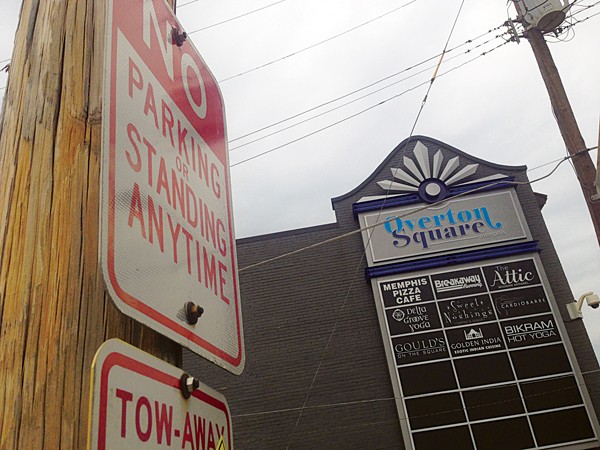 Toby Sells
Toby Sells 

